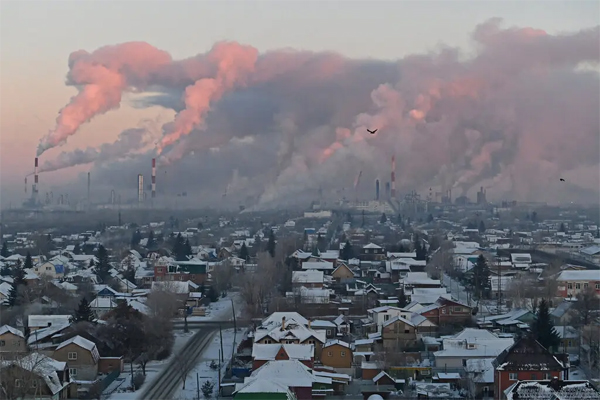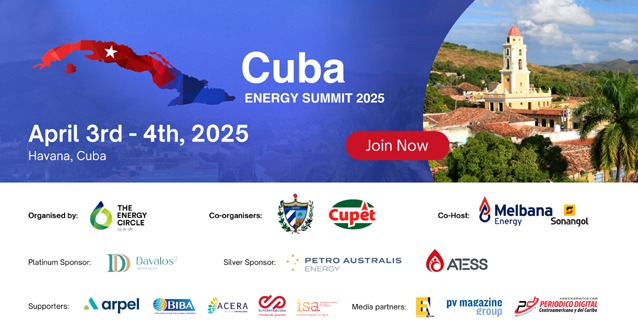As the West moves to intercede in oil trading, OPEC Plus, led by Saudi Arabia, is expected to protect its own interests.

Stanley Reed, NYTimes
LONDON
EnergiesNet.com 12 02 2022
Oil officials from OPEC and Russia will meet on Sunday to consider production levels, just hours before the European Union begins an embargo of Russian oil and as the Group of 7 industrialized nations and their allies impose a price cap on Kremlin’s crude.
With so much uncertainty, the group, known as OPEC Plus, may choose to stand pat. In October, it drew fire from the White House and other quarters after announcing a two-million-barrel-a-day cut.
The group may prefer a wait-and-see attitude, analysts say, as a variety of forces play out in the oil markets. The immediate challenges are the European Union’s embargo on most Russian crude, which begins on Monday, and a United States-led plan to cap the price of Russian oil exported to other destinations at $60 a barrel. That price, which locks in an existing discount on Russian crude compared with alternatives from other parts of the world, was agreed to on Friday by European Union ambassadors, according to diplomats, and is expected to be formally announced by the Group of 7 on Sunday.
But those factors are only part of the problem facing OPEC Plus.
Global economic growth is slowing because of higher central bank interest rates, supply disruptions and inflation. At the same time, demand for oil by China, the largest importer of the fuel, has been dampened from Covid lockdowns that have taken a toll on the country’s economy and manufacturing capability. Oil imports by China in the coming months are “going to be going down, spectacularly,” said Viktor Katona, an analyst at Kpler, which tracks ship traffic.
That leaves OPEC Plus and its de facto leader, Saudi Arabia, with a tough call to make.
“They haven’t faced a period of this much short-term uncertainty in decades,” said Raad Alkadiri, managing director for energy, climate and resources at Eurasia Group, a political risk firm.
The outcome of the price cap and the embargo is difficult to forecast, but their impact could quickly eclipse any move that the Organization of the Petroleum Exporting Countries decides to make over the weekend — and its members also risk taking a share of criticism in the West if prices rise.
“It feels like a time when OPEC Plus would rather be in the background than the spotlight,” said Richard Bronze, head of geopolitics at the research firm Energy Aspects.

Still, the cut that OPEC Plus announced in October, despite pressure from the Biden administration to increase production to ease gasoline prices, should dampen any hopes that Saudi Arabia and its allies will do anything but act in their own interests, analysts say. Their primary goal is to seek to prevent the price of oil from dropping.
Indeed, Prince Abdulaziz bin Salman, the Saudi oil minister, warned recently that the group remained “ready to intervene” by reducing supply to bolster prices. Analysts say that if oil prices fall in coming weeks, OPEC Plus will not hesitate to cut production in January or February.
“I don’t think there is anything that stops OPEC from taking oil off the market if it wants to,” Mr. Alkadiri said.
The war in Ukraine, after huge disruptions to the oil and gas industry from global Covid shutdowns, has created an opportunity for the Saudis and their OPEC allies.
With uncertainty about supplies from Russia, one of the world’s key energy producers, Saudi Arabia’s ability to produce additional oil has rarely been so important. This attribute, along with the relatively high prices for oil, now about $87 a barrel for Brent crude and $81 for West Texas Intermediate, give Crown Prince Mohammed bin Salman, the kingdom’s chief policymaker, the confidence and revenues to pursue a political course more independent of Washington than his predecessors.
But the inclination of Western governments to intervene in energy markets, an area that OPEC considers its purview, appears stronger than at any time in many years.
Many traders and investors are skeptical about whether the price cap and Russian oil embargo will be effective. But those moves are threatening to the Saudis and other producers, analysts said, because they could mushroom into a form of buyers’ cartel, turning the tables on OPEC. The worry is that these Western initiatives could result in “the ability to mandate what kind of oil is good oil,” and how much it should cost, said Karen E. Young, a senior research scholar at the Columbia University Center on Energy Policy.

What seems likely is that tensions between the West and the Saudis and their allies will persist. Europe will want the Middle East producers to help substitute for lost Russian oil. But the Saudis are unlikely to wish to appear to take sides against Russia, which has been a useful ally on oil matters since reaching a deal with OPEC in 2016. Before that, Moscow took advantage of OPEC’s production cuts to sell more of its own oil.
Europe is facing a truly gargantuan task. First, it must replace a major source of crude oil when the Russian embargo starts on Monday; then, in February, the embargo expands to cover Russia’s refined products, like diesel. Much of the switchover is already happening, with tankers bringing oil to Europe from the United States, Brazil, Guyana and the Middle East.
For this reason, analysts say, Europe may escape major problems — at least in the early days. “There might be a bit of disruption in the first few days,” said Josh Folds, an analyst at FGE, a consulting firm. He said the plan to phase out Russian refined products in February might create greater problems, especially for diesel, which Europe has been importing from Russia in vast quantities.
Oil markets, too, have been calm, staying at just under the $90 a barrel for Brent crude, the international benchmark, a price level, analysts say, that the Saudis want to defend.
But much could also go wrong. The world’s oil trade is being rerouted, often with much longer journeys, straining the shipping fleet to near breaking point. And while it is widely assumed that President Vladimir V. Putin of Russia will allow operations to continue as usual while the embargo and the price cap kick in, some analysts worry that he could start to withhold or obstruct oil, using the fuel as a weapon in the war in Ukraine just as he has by cutting natural gas deliveries to Europe.
“We have seen increasingly that Russia has done things which are driven by politics rather than economics when it comes to energy exports,” Mr. Bronze said.
Stanley Reed has been writing from London for The Times since 2012 on energy, the environment and the Middle East. Before that he was London bureau chief for BusinessWeek magazine. @stanleyreed12
A version of this article appears in print in the NYTimes, on Dec. 3, 2022, Section B, Page 3 of the New York edition with the headline: As Global Forces Intervene on Oil Market, OPEC Plus Weighs Its Options.












